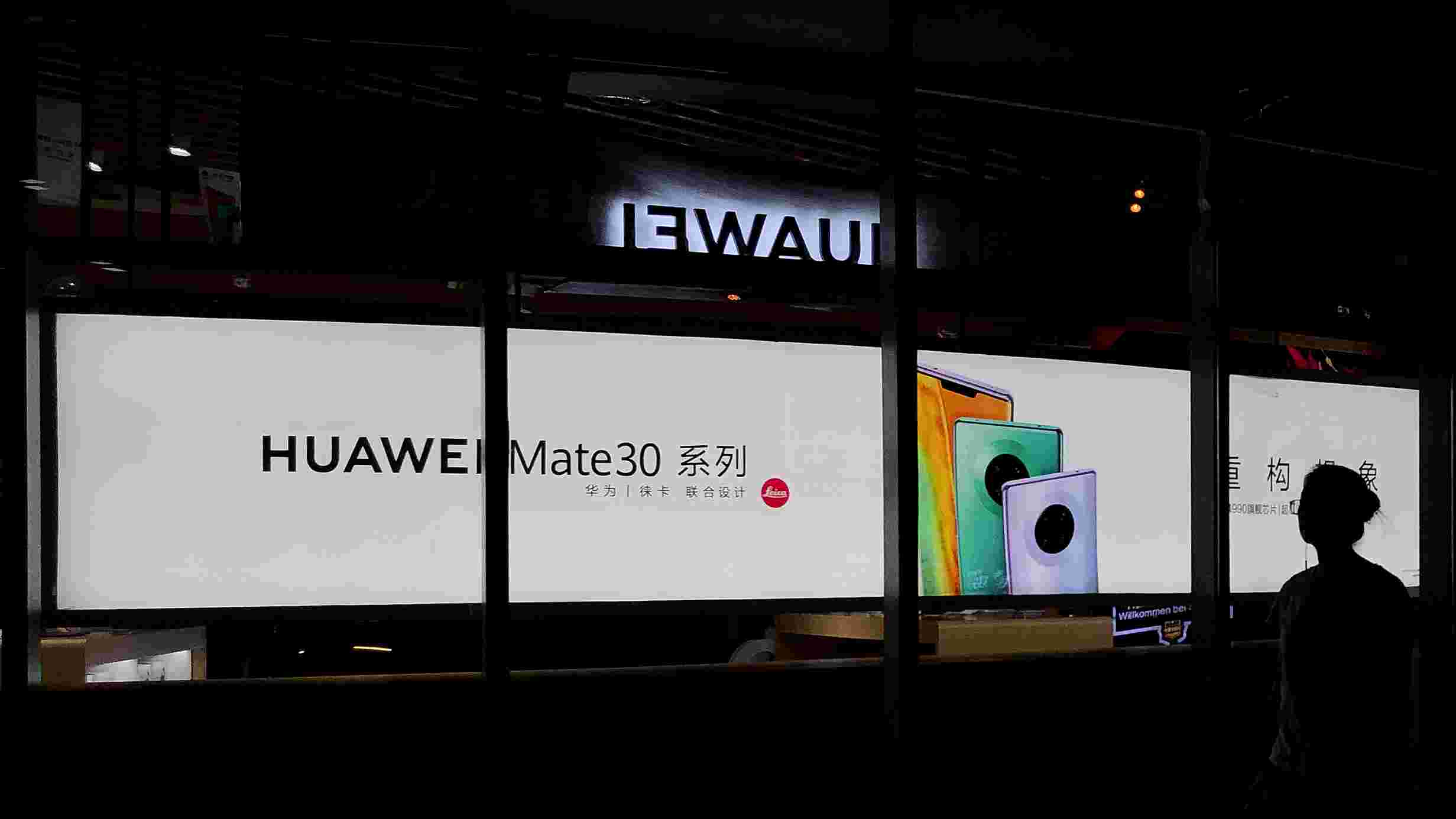
Russia's Foreign Minister Sergei Lavrov speaks at All-Russian Youth Educational Forum Territory of Meanings, August 23, 2020. /CFP
Russia's Foreign Minister Sergei Lavrov speaks at All-Russian Youth Educational Forum Territory of Meanings, August 23, 2020. /CFP
Editor's note: Lan Shunzheng is a research fellow at the Charhar Institute and a member of the Chinese Institute of Command and Control. The article reflects the author's opinions, and not necessarily the views of CGTN.
On August 23, Russian Foreign Minister Sergei Lavrov announced at a forum that Russia is ready to cooperate with China and Huawei in 5G technology, according to TASS news agency. In his speech, Lavrov was reported to have promised that Russia would not follow the U.S. on the issue.
"We will definitely not follow the example of the Americans, who simply demand that everyone not cooperate on 5G with China, in particular with Huawei," Lavrov said. Instead, Russia is interested in interacting with other countries to "create modern technologies and implement them into practical life." What is clear is that, at a time when many Western countries have joined forces to crack down on Huawei, this is a big endorsement from Russia.
On the one hand, Russia says it wants to cooperate with Huawei because it has real needs. Russia has been a late 5G entrant, but its moves in recent years have been more and more dramatic. In 2017, for example, Moscow Mayor Sergei Sobyanin convened major network operators to discuss the possibility of developing 5G in the form of a consortium.
Sobyanin hopes to attract investment from major operators to turn Moscow into a 5G city by 2020. At the end of July, MTS, Russia's largest telecom operator, announced on its website that it had obtained a 5G standard service license with a frequency of 24.25 GHz to 24.65 GHz, issued by the Russian Federal Communications Regulatory Agency, in 83 regions in Russia, and the license is valid until July 2025.
Thus, MTS became the first operator to obtain a 5G license in Russia, marking the beginning of the commercial era of 5G in the country.
The problem is that getting a 5G license is only the first step, and Russia still has a long way to go before it is truly universal. The subsequent 5G network construction needs a lot of capital investment. Even MTS President Alexey Kornia admits that "Russia's development in this field is much slower than China's."
Given Huawei's achievements in 5G research and development, it makes sense for Russia to choose to cooperate with China's Huawei to promote the construction of 5G. In fact, cooperation between Russia and Huawei has already begun. In October 2018, telecom company VimpelCom (brand Beeline in Russia) and Huawei jointly demonstrated 5G technology, which uses mixed reality glasses to transmit digital images and realize human communication.
In June 2019, MTS signed an agreement with Huawei to test 5G networks in Russia in 2019 and 2020. In August 2019, MTS launched a 5G mobile communication network in Kalunshtadt, St. Petersburg, using 5G mobile network technology from China's Huawei.
On the other hand, that Russia has opened the door to Huawei also has something to do with American containment.
The U.S. and Russia are already at loggerheads, and Russia is under pressure from the West, led by the U.S., in all directions. After the COVID-19 outbreak, the hostility of the U.S. towards China also increased sharply, which made Russia feel the need to compete "back to back" with China against the U.S., including in its technological neighborhood.

For example, on August 2, the website of Spain's China Policy Watch published an article entitled "Eurasia: Between Digital Regionalization and the Iron Curtain of Technology." It contends that the new era brings Russia and China closer in many ways. The re-emergence of certain problems during the Cold War has re-established Russia as one of the important counterweights of the so-called "new Great Game."
Against this background, China plays an important role, especially in the promotion of the Belt and Road Initiative. Moreover, the spread of international conflict in Eurasia into the realm of technology has brought China and Russia closer.
As is known to all, China and Russia, as partners with a long-term basis for cooperation, have great space for development in scientific and technological cooperation. First, the two sides have established a series of sound mechanisms for scientific and technological cooperation and a solid foundation for projects.
Second, Russia's science and technology is unbalanced. Military industry, aviation, heavy industry and basic research are developing rapidly while applied research and consumer industry sectors are relatively weak, and a large number of research achievements are difficult to be transformed and put into production.
In addition, Russia is now in a period of economic recovery and technological reform, but suffers from "lack of money." With the progress of science and technology and the development of the economy, China can not only alleviate Russia's dilemma in agricultural technology, human resources and other aspects, but also its rich foreign exchange reserves are urgently needed by Russia. Therefore, the two countries can realize complementary advantages.
Russia's public announcement of its welcome for Huawei heralds closer cooperation between the two countries in their technological neighborhood and greater convergence in the fight against hegemony.
(If you want to contribute and have specific expertise, please contact us at opinions@cgtn.com.)